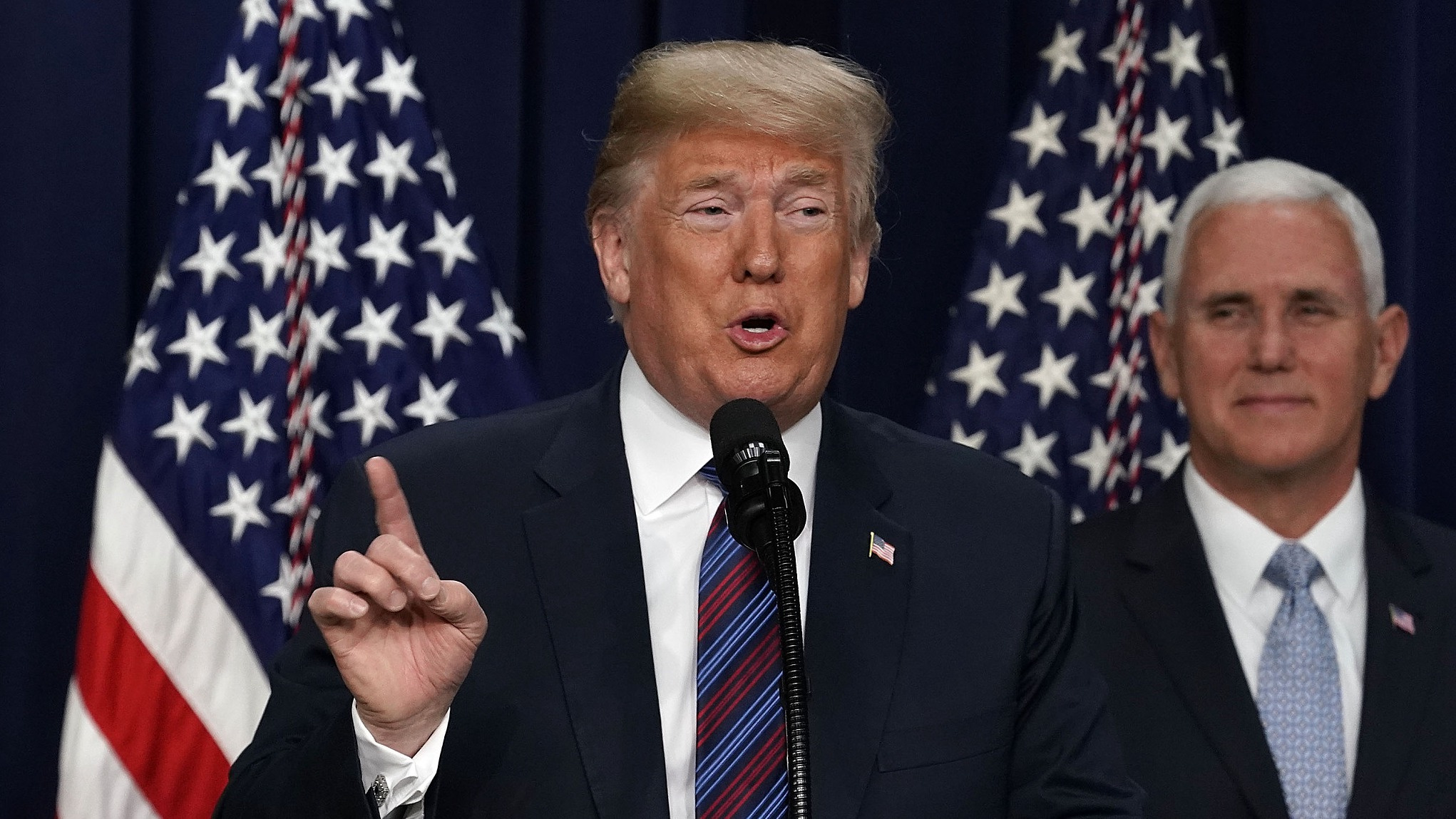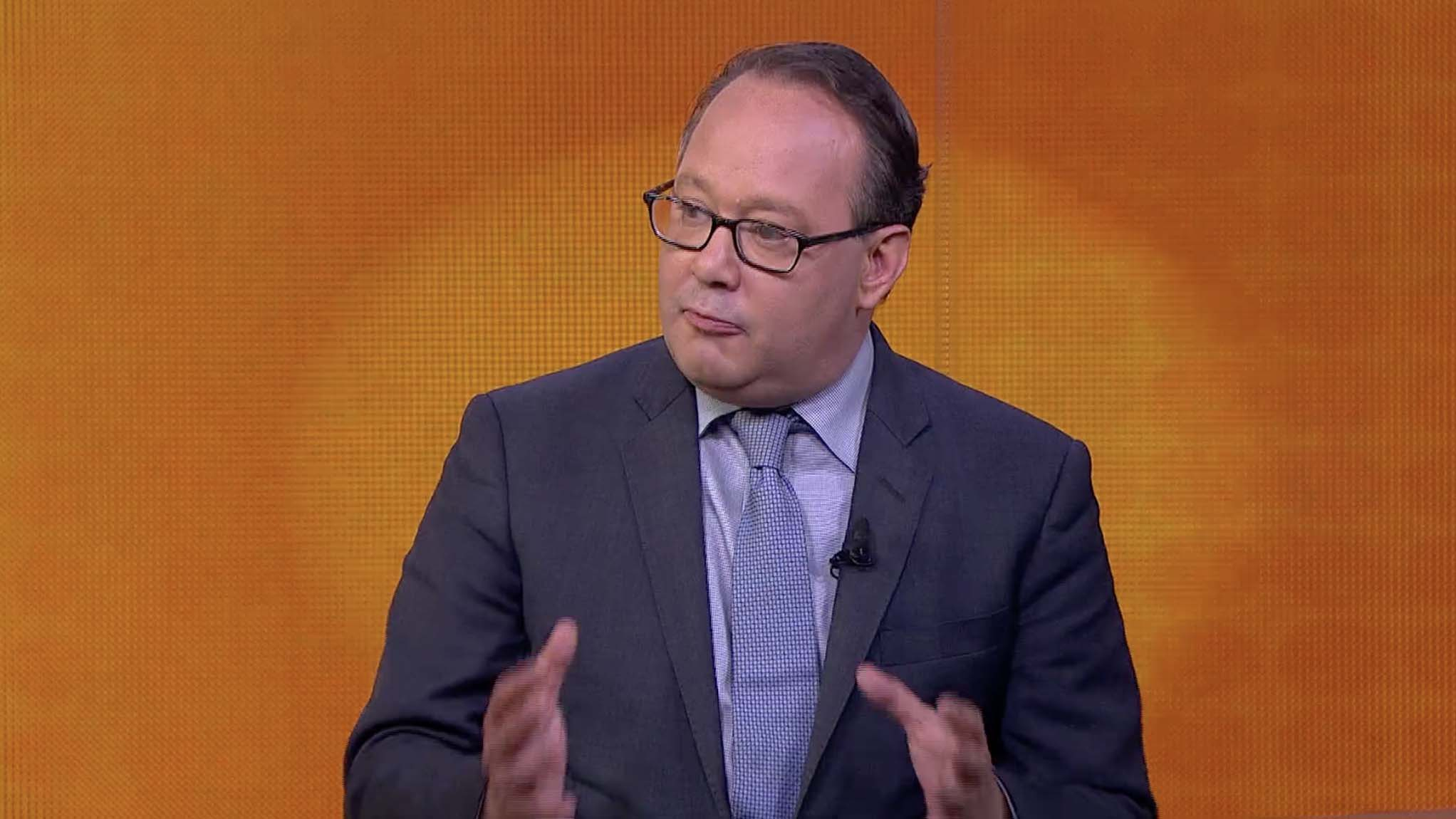
Opinions
12:09, 31-May-2018
Trade dispute and US-DPRK Summit: Two birds with one stone?
CGTN's The Heat

The Trump administration decides to proceed with its plan to levy 25 percent tariffs on 50 billion US dollars worth of goods from China, days after U.S. Treasury Secretary Steven Mnuchin declared the trade war was “on hold.”
Trump’s negotiating tactics are unpredictable
Donald Trump abruptly changed tune, and the China tariffs are back on. Nathan King, CGTN’s White House correspondent said this is only part of the plan. In addition to tariffs, the White House is starting to move forward with Chinese investment restrictions in critical technologies, as well as export controls on U.S. technology at the end of June.
“Wilbur Ross, the U.S. commerce secretary, is about to go to China and take this trade negotiation further,” King said. “There are a lot of talks here in Washington that this is a negotiating tactic to try and strengthen the U.S. position ahead of those talks. What bugs me really is that the climate was actually getting better between the U.S. and China in the last round of trade talks, and suddenly this comes along.“
“China is the fastest growing export market for the United States, so China does have some cards to play against the U.S.,” said Xu Qinduo, a senior researcher with the Pangoal Institution. “China is to overtake the U.S. to become the largest ritual market in 2018, so I think the attraction of the Chinese market is growing for the U.S. goods and the business communities. I am not sure the U.S. is going to shut itself out of the Chinese market.”
Instead of the tariffs, Xu said China is more concerned with the investment limits and the restrictions in technologies exported to the Chinese market.
Brian Becker, the host of “Loud and Clear” on Radio Sputnik International and a United States – Democratic People's Rebuplic of Korea (DPRK) analyst, also said that Trump’s negotiating tactics had been unpredictable, adding that there is no strategic thinking in this White House statement.
“The one thing you can count on with the Trump administration is that you can’t count on anything,” Becker said. “It’s really, completely empirical and eclectic. As a consequence, no one knows what the U.S. actually wants.”
However, Merrill Matthews, resident scholar at the Institute for Policy Innovation in Dallas, disagreed with Becker, saying that he would “give the president a little bit of credit.”
01:15

“He may be a little more strategic in this than it appears to us, because often times he does seem to get to the end that he wants to,” Matthews said. “I think that’s his ultimate goal.”
Following the White House’s announcement, the Ministry of Commerce of China soon responded in a late-night statement, calling it unexpected and within expectation. The ministry said, “whatever measures the U.S. takes, China has the confidence, capability and experience to defend the interests of both the country and the people.”
Trump also applies his on-again, off-again strategy to the US-DPRK summit
Matthews further added that President Trump is viewing the trade war and the US-DPRK summit as interacting. “ Democratic People's Republic of Korea (DPRK) is not separate from the trade deals with China,” Matthews said. “Hopefully from his standpoint, he is able to get one point or another done by playing off those two powers.”
Trump not only plays whipsawing on the trade war with China, he also applies his on-again, off-again strategy to the US-DPRK summit.
Earlier this month, President Trump set a historic summit with DPRK leader Kim Jong Un on June 12. Later he called the proposed meeting off, and now the summit is going to happen again.
The DPRK official Kim Yong Chol is now in the United States for talks, and he is the highest level official to visit the United States in 18 years.
“That’s a sign that the Koreans in the North are very serious about making sure that not just the logistics, but also the substance of what denuclearization actually means can start to be discussed in a meaningful way with senior leaders in the Trump administration,” said Becker.
The DPRK is serious this time. Along with the South, they have realized that they have to “take the bull by the horns” to forward the process after Trump canceled the meeting the day after he met with South Korea President Moon Jae-in, according to Becker.
Both sides are determined to make progress. The South has also been driving this process, even after Trump announced that the summit was not going to happen.
“Moon redoubled his efforts and that led to that incredible weekend summit with Kim Jong Un on the north side of the border,” King said. “In terms of Moon Jae-in, he was so freaked out by the Rocket Man talk last year that he realized the only way to stop this is to get the U.S. and DPRK to sit down. And he’s the only man that really can do this.”
Looking forward, the problem cannot be solved overnight. King said that the deal will take months, if not years, to complete because disputes about definitions of “denuclearization” occur between DPRK and the United States.
The summit could be the very start of the trust-building process, but it takes effort. With the U.S. nuclear presence, it is hard for the DPRK to reorient the budgeting of the country’s money away from the military and toward consumer goods, according to Matthews.
“DPRK has made it very clear that the precondition for the talks is not the DPRK’s denuclearization,” Matthews said. “The precondition for them is the ending of the DPRK hostility policy of the United States. What they want practically is a peace treaty, the ending of sanctions, and the normalization of relations.”
In terms of China, Xu said China is playing a critical role in bringing the DPRK to the negotiation table, and the DPRK has the full support of China to continue the talks. On this issue, China and the United States are on the same page.
“It’s in the interests of China to have a neighbor which is nuclear free,” Xu said. “It’s in the interest of everybody. The DPRK needs the Chinese to back up its negotiation with the United States. They do need partners.”
The Heat with Anand Naidoo is a 30-minute political talk show on CGTN. It airs weekdays at 7:00 a.m. BJT and 7:00 p.m. Eastern in the United States.

SITEMAP
Copyright © 2018 CGTN. Beijing ICP prepared NO.16065310-3
Copyright © 2018 CGTN. Beijing ICP prepared NO.16065310-3